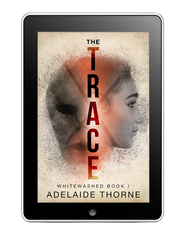|
Contrary to the title of this post, I'm not going to talk about writer's block. I'm not going to talk about writer's block because writer's block doesn't exist. When my creative writing professor first said that writer's block is an imaginary obstacle invented by writers, I was entirely skeptical. But then I was relieved.
People talk about writer's block as if it's this unstoppable, joy-sucking force that swims along the stream of creativity from victim to victim. When writers hit the climax of all plot climaxes, they're sent tumbling down by the clutches of that fateful WB that plagues every writer. Sitting down with a nice cup of black coffee, ready to show the pessimistic world that you're not a failure at writing? BAM. No you're not. In comes writer's block, out goes inspiration, and you're left with a mug of coffee that you don't even like because who likes black coffee? That's right: no one. I have indeed been struck by that long-dreaded but long-expected WB. I have been plucked from the Land of Meaningful Sentences and dropped in the Pit of Useless Drivel. And you know what? I think I allowed myself to be carried away. In fact, I may have willed it. Why? Because as writers we are taught that, at some point or another in our writing career, we are going to have absolutely nothing to write. Our fervor is going to dry up mid-plot, and we're going to have to ride the tails of crappy sentences until we find our way back into the groove. WB is the unavoidable doom that, paradoxically, makes a writer a writer. Unless it doesn't exist.
2 Comments
Dear Readers:
Today, I would like to talk about what I call "First Chapter Syndrome." This might already be a term coined by a smart person who has done actual research. My research comes from experience and the woes I've heard from fellow writers who can't move past that first chapter. The first chapter is hard. It's excruciating. It bleeds you dry. Let me tell you a little secret. It took me six years to perfect my first chapter. "What!" I know, I know! I've since realized things. I'm always realizing things, aren't I? That is why I'm a huge proponent of "Do everything wrong at first so that afterward you can do everything right." For instance: The way I wrote my first draft of The Trace? Totally wrong. But that's a discussion for a future blog post. *Makes mental note to self.* Here are three (and only three!) of the things I have learned that prevent writers from succeeding in that first chapter. |
Whitewashed Book ICategories
All
|

 RSS Feed
RSS Feed